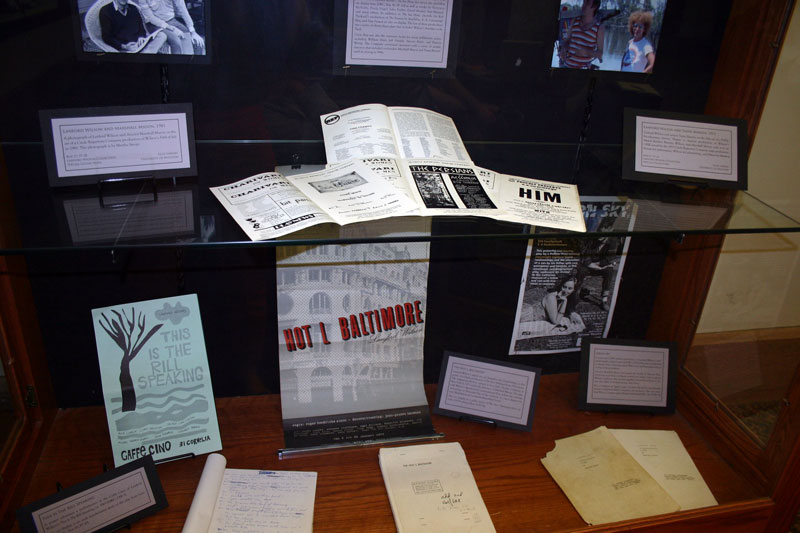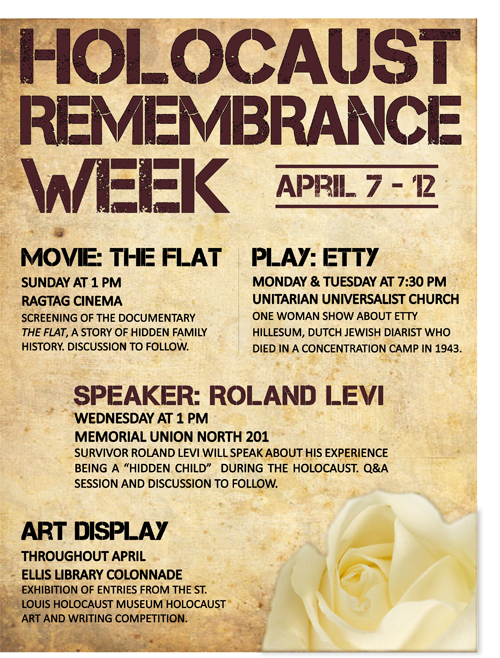We're happy to announce that an exhibition of selected materials from the Lanford Wilson Collection, curated by our colleagues at the University Archives, is on view in the Ellis Library Colonnade.
Pulitzer Prize-winning playwright Lanford Wilson made a legacy gift of his papers to the University of Missouri in 2011. Wilson grew up in Springfield and Ozark, Missouri, and spent most of his life in New York. He began his career at Caffe Cino, a pioneering Off-Off Broadway theater run by Joe Cino that produced plays by many young, aspiring playwrights.
Wilson wrote plays for La MaMa Experimental Theater Club and the Circle Repertory Company, a project organized by Wilson and three of his associates from the Caffe Cino and La MaMa. Plays that premiered at the Circle Repertory Company included Talley's Folly, Serenading Louie, The Mound Builders, Fifth of July, and The Hot l Baltimore. Wilson's plays were critically acclaimed and won several awards and nominations. In 1980, he was awarded the Pulitzer Prize for Talley's Folly. Wilson was elected to the Theatre Hall of Fame in 2001 and to the American Academy of Arts and Letters in 2004.
 The Lanford Wilson Collection includes 53 linear feet of correspondence, manuscripts, notebooks, posters, photographs, and over 100 books. Researchers can access the finding aid online, and the collection is available for use in the Special Collections reading room.
The Lanford Wilson Collection includes 53 linear feet of correspondence, manuscripts, notebooks, posters, photographs, and over 100 books. Researchers can access the finding aid online, and the collection is available for use in the Special Collections reading room.
The Lanford Wilson exhibition is presented in conjunction with a conference, "Angels in Performance: Documenting LGBTQ Lives in Theatre & Performance," hosted by the MU Department of Theatre, April 24-28. The conference will feature guest artist and award-winning playwright and screenwriter, Tony Kushner. The exhibition will be on view through the month of April.

